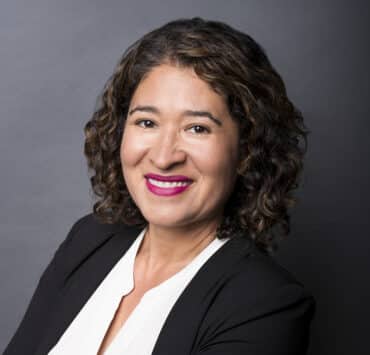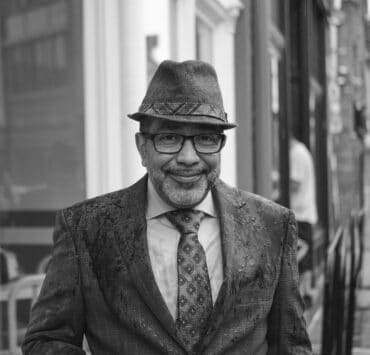|
Getting your Trinity Audio player ready...
|
Carolina Serra has always thought on a global scale. “I knew early on that I wanted to pursue an international career,” she says. And indeed, Serra has spent much of her career leading HR teams and departments in Latin America, Europe, and the United States. She’s brought all of that experience, as well as her experience volunteering with international NGOs, to the Inter-American Development Bank (IDB).
After graduating with a degree in business administration, Serra started her career as an HR generalist at Itaú Unibanco, the largest private bank in Latin America. In 2006, Serra found her first chance to work abroad when she took an assignment in Portugal. A few months later, she accepted another assignment in Miami. Then, in 2009, she decided to pursue a master’s in employment relations and human resources management at the London School of Economics while still working part-time for Itaú.
As Serra grew as an HR leader, she made her dream of a global career well known. Roles of increasing responsibility took her back to Brazil and then to New York, where she ran Itaú’s operations in multiple regions. Although Serra found the work incredibly fulfilling, she found herself wondering about life outside of HR and financial services in big cities. She wanted to take some time off and see the world—and when she proposed a year-long sabbatical of volunteerism and self-exploration, her husband agreed, since this was also his dream.
During their sabbatical, the Serras volunteered as advisors for SASANE, a Nepal-based NGO that supports the re-integration of human trafficking survivors into society. Next, they traveled to Cambodia to help a community center provide sustainable development and alternative sources of income. Then, they went to Tanzania to help the Woman Education and Economic Center (WEECE) provide microloans to marginalized and low-income individuals.
These experiences deeply marked Serra, inspiring her to make a further impact and reinforcing her lifelong passion for diversity and inclusion. “When you empower women,” she says of the WEECE’s microloans program, “it changes the community.”
Spurred by these experiences, Serra was determined to find a position at “an organization that had a higher impact on our society and planet.” As the year came to an end, a friend messaged her about a job opening at the Inter-American Development Bank. Serra researched the organization and quickly noticed a fit.
The IDB, which started in 1959, is now the leading source of development financing for Latin America and the Caribbean (LAC). The bank, which provides loans, grants, technical assistance, and research, is the main source of development finance in LAC: it supports countries in their efforts to promote equality, reduce poverty, and improve lives in the region.
“Our purpose is improving lives. It’s not like a regular commercial bank: it brings knowledge to the region and offers solutions that countries need,” Serra explains. “The bank has a whole platform to share information—that’s part of my leadership values, sharing what you know and not just holding it for your advantage.”
Serra joined the organization as general manager and chief human resources officer in 2019. A year into her tenure, the COVID-19 pandemic put corporate HR into the spotlight. Serra led her team through the ambiguity of that period, but she also saw, when she left for parental leave, her team members rising to the occasion—both in the HR department’s efforts to break down traditional silos to help teams navigate the pandemic, and in their support of her as she began this new chapter of her life.
Those silos came fully down as Serra repositioned HR as a strategic advisor for internal clients. “We need to be by the side of the managers and leaders who are making important decisions that impact the business and its people,” she says, adding that she looked to elevate HR to make the function a true partner with the business.
Right before the pandemic, Serra and her team were also renovating policies regarding maternity leave, paternal leave, and diversity. Remembering the many ways in which she saw organizations supporting women and families during her sabbatical, Serra advocated for a new gender-neutral parental leave policy that provides one hundred days for a primary caregiver and fifty days for a secondary caregiver. Since the program started, men have identified as the primary caregiver in 12 percent of requests.
At IDB, where people of forty-four nationalities work together every day, diversity and inclusion is a core part of the business. “Diversity, equity, and inclusion is part of the essence of the bank,” Serra emphasizes. “We have to be an example for our clients as well as the region.”
The organization is adding an equity focus to what was once a diversity and inclusion program, as it seeks to further level the playing field. The efforts have paid off. The IDB is the first development bank in the Americas and second worldwide to earn EDGE Move, a prestigious business distinction that recognizes efforts to be an equitable workplace. Today, women hold 42 percent of the organization’s leadership positions. Two hundred and ninety women have completed leadership development programs, and the IDB has eliminated gender-based pay gaps.
It’s been a busy three years. Serra, who says she’s happy with her decision to put herself on a purpose-driven career path, is ready for more. “This is a journey,” she says. “This new reality brought us new challenges, but I feel my team and I are ready to tackle them. There is still a lot of work to be done.”

